This article was authored by Talitha Fraser and Naomi Wolfe, with input from colleagues who participated in the walk.
On Wednesday 18th June, nearly 4,000 people joined Commissioner Travis Lovett for the final day of the Yoorrook Justice Commission’s Walk for Truth. Commissioner Lovett led the 500km walk from Portland (Gunditjmara Country and the site of the Convincing Ground massacre) to Victorian Parliament (Wurundjeri Country) and was joined by some 12,000 people over 25 days. The walk symbolised the Yoorook Commission’s journey of recording the historical violences wrought against First Peoples and of speaking the truths of ongoing traumas and systemic injustices aloud to political power.
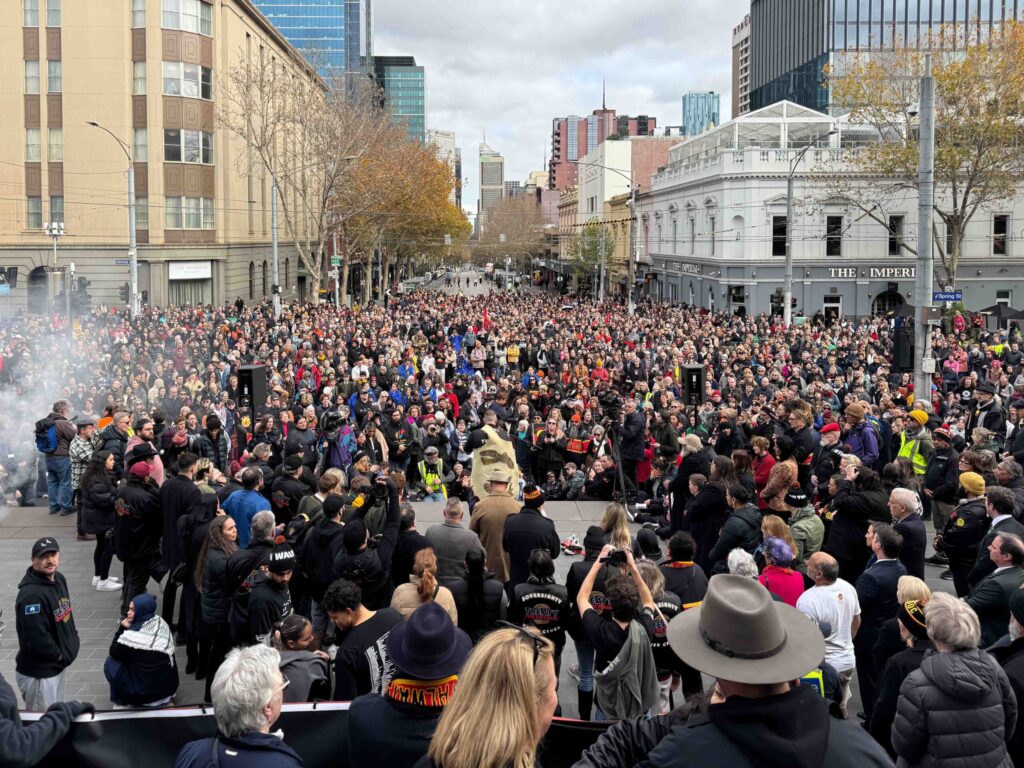
Participants walked in solidarity and watched as the message sticks collected from mob along the walk were presented to the Victorian State Parliament. “It’s about walking side by side, listening deeply with respect and taking steps toward a fairer Victoria for everyone,” said Commissioner Travis Lovett, in a speech to Community members and allies at the event.
It’s been 190 years since the invalid attempt for a Treaty made by Batman with Wurundjeri leaders on the banks of the Merri Creek. A long time and a short distance from that place – we are finally on the cusp of the first ever Treaty and where the First Peoples’ Assembly and Victorian Government will be able to enter negotiation as equals. The Treaty is one of the ways that all Victorians can come to terms with historical and contemporary relationships with Aboriginal peoples. It is an invitation to learn from the often-fractured relationships of the past and make a commitment to a relationship that is responsive and inclusive.
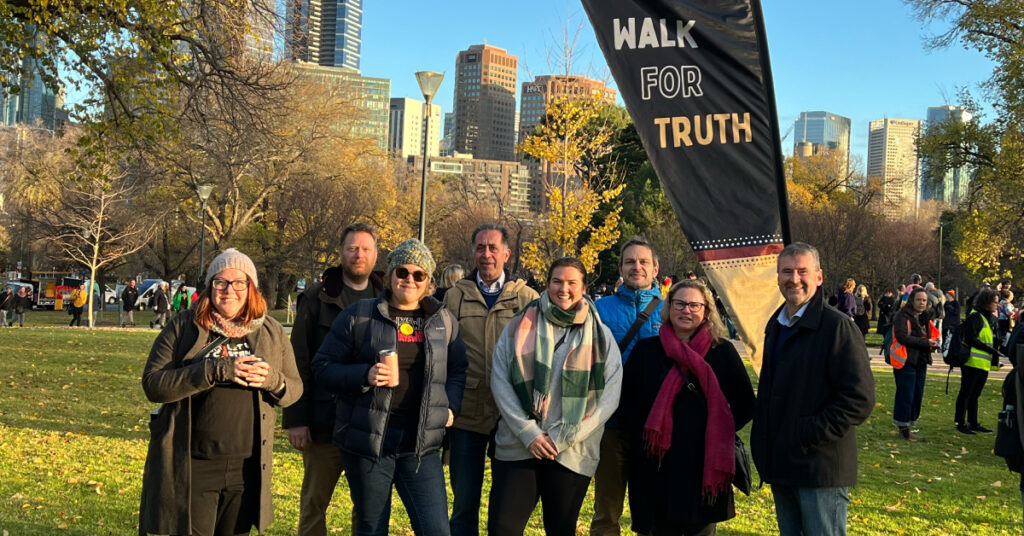
A number of University of Divinity staff joined the walk on its final day, and share their reflections here:
“The referendum result was so disappointing. I was deeply grateful for an invitation, and proud to walk together, to witness, and to take action for a future where change is possible to imagine again.”
Talitha Fraser
“It was a privilege to join colleagues from the Uniting Church, the University of Divinity, and thousands of others to witness the Yoorrook Justice Commission walking their report to Parliament. As Commissioner Travis Lovett spoke about the hard work of this truth-telling journey, his words rang out with such hope, passion, and grace as he invited us to fight for the rights of everybody in our community.”
Rev Associate Professor Robyn Whitaker
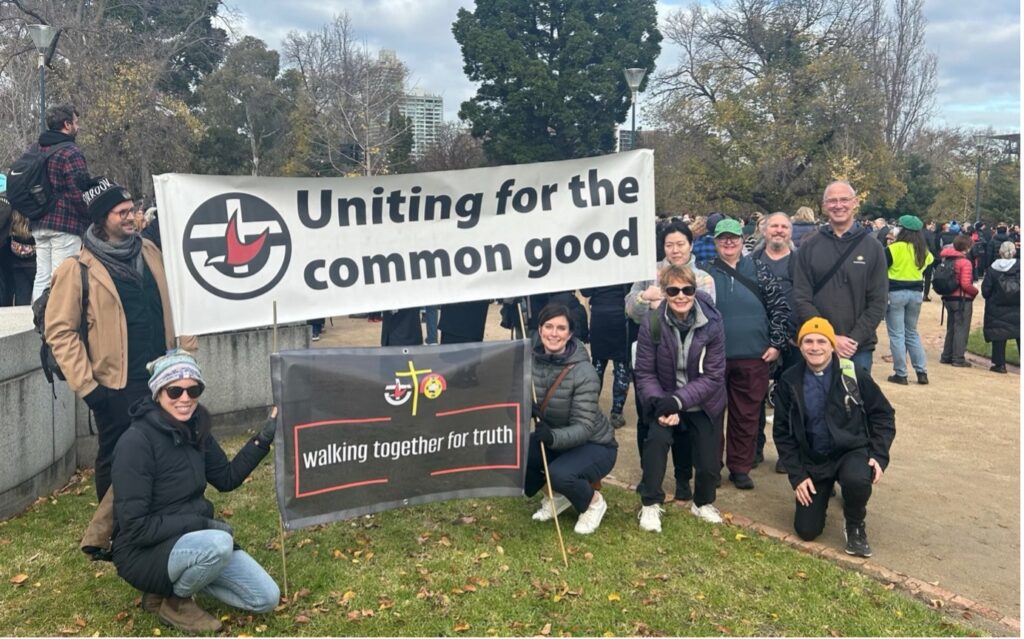
“Participating in the last leg of the walk was an opportunity to take up the invitation of the Yoorrook Commission and the Uluru Statement from the Heart to walk in solidarity with Aboriginal and Torres Strait Islander peoples in their quest for truth and treaty. It was fabulous to see a large crowd, which included school groups, coming together in support.”
Professor Liz Boase
“Coming from a different background, I felt deeply moved and honoured to walk alongside others in solidarity, learning about the land’s Traditional Owners and the strength of the First Peoples’ stories.”
Saranya Tosomran
“It was a privilege to walk with and support the real need for truth. As an immigrant Australian, I deeply appreciate the hospitality and welcome from indigenous Australians more than ever before. It was great to walk as a UD team in this important event.”
Professor Albert Haddad
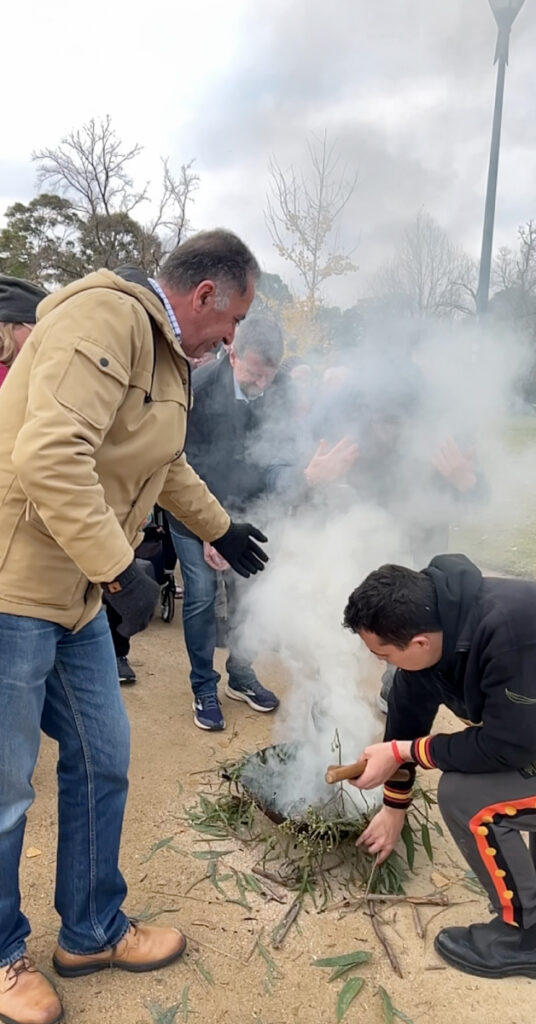
“As First Nations people welcomed us to Country at the start of the walk, we witnessed their incomprehensible strength and dignity: they were welcoming onto their lands the very people who dispossessed them. Paolo Freire wrote that an oppressor’s power always lacks the strength to liberate either the oppressed or themselves, while the strength within the oppressed has the power to liberate both. I was humbled to honour the strength made manifest by the Walk for Truth, and to be led by our First Nations people towards justice.”
Dr Paul Daniels
“It was a privilege to participate in the Walk for Truth. As we all stood at the starting point the way people engaged with this important opportunity to support the work of the Yoorook Justice Commission was uplifting. It was wonderful to share the experience with colleagues from the University community. I was fortunate to also attend the leg of the walk in Geelong on Thursday 12th June. From both days I was struck by the generosity of Commissioner Travis Lovett, encouraging and welcoming us to walk with him.”
Professor James McLaren
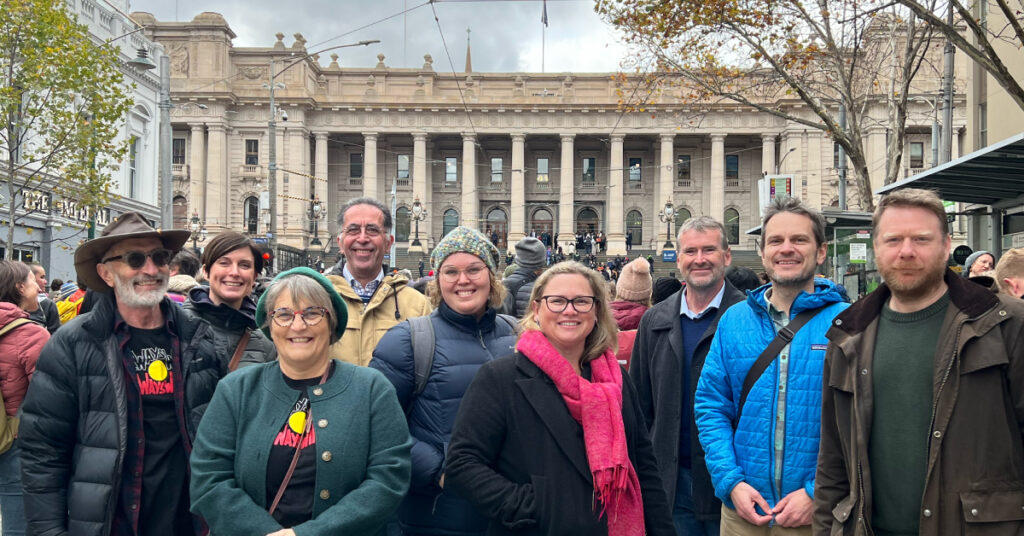
As the truth telling phase ends, the work for Treaty begins and this means our responsibilities to work for, uphold, and require accountability from our government. We are invited to walk together for treaty, today and into the future.
“As a University community we have an opportunity through the Treaty education process to develop and grow existing and future relationships with Aboriginal and Torres Strait Islander communities. As a Christian community it is imperative that we walk in faith, towards reconciled and renewed relationships between Indigenous and non-Indigenous peoples across our institution, and across these lands.”
Naomi Wolfe
Next steps in the walk
There are many ways into this learning, conversation and relationships for us as Christians within our individual discipleship journeys, our faith communities, our families, our work and beyond. Keen to catch up on what this conversation is about? You might like to watch videos and read submissions from the Yoorook Justice Commission’s truth telling process, in particular those which relate to the Church in this State.
We can listen for the voices of Aboriginal Christians on these issues such as Garry Deverell’s article on the ABC Religion and Ethics: ‘“For your sakes he became poor …”: How the churches can reckon with their colonial legacy?‘, Anne Pattel-Gray’s article in The Melbourne Anglican ‘To decolonise, the church must first recognise Indigenous leaders’ capability‘ and Naomi Wolfe’s article for Tearfund ‘‘It is good’: a reflection on land, healing and hope‘.
Follow the social pages of the Yoorook Justice Commission and The First Peoples’ Assembly of Victoria to stay current with emerging opportunities for connection.


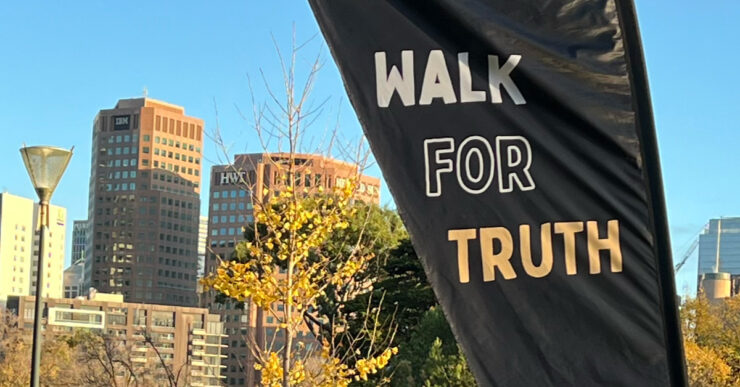
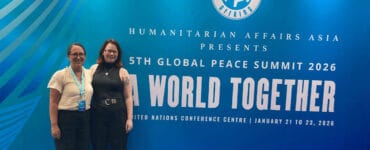
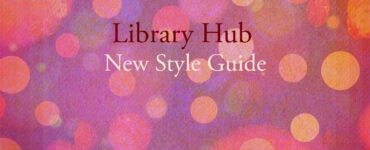
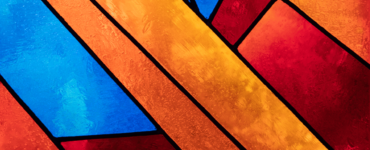
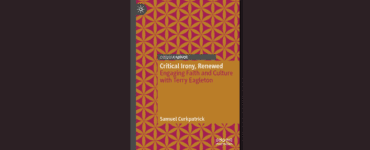
Add comment